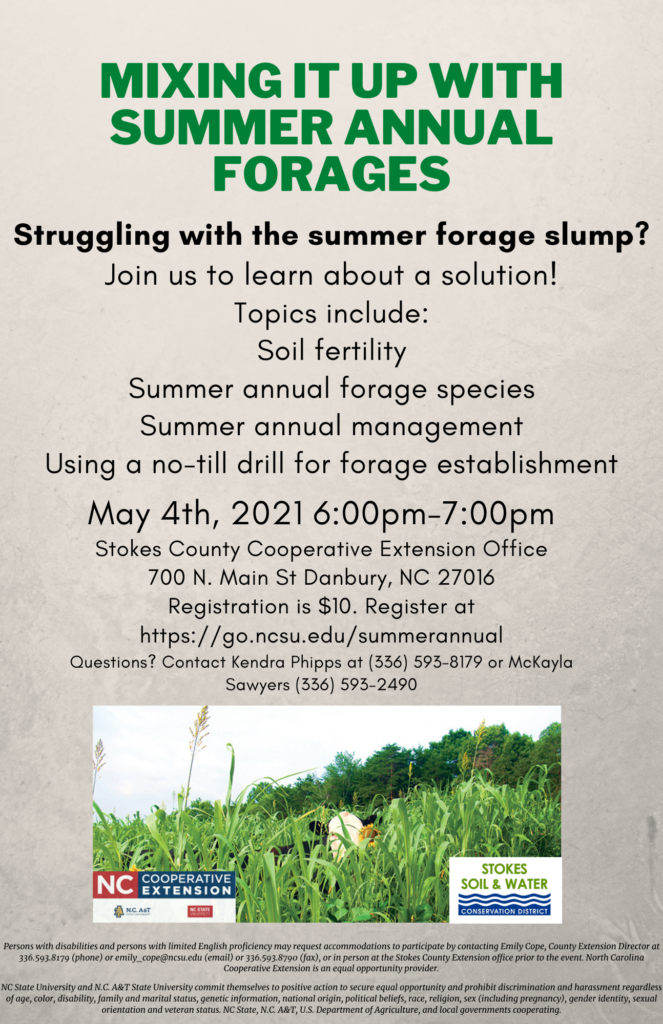Mixing It Up With Summer Annual Forages
go.ncsu.edu/readext?785593
en Español / em Português
El inglés es el idioma de control de esta página. En la medida en que haya algún conflicto entre la traducción al inglés y la traducción, el inglés prevalece.
Al hacer clic en el enlace de traducción se activa un servicio de traducción gratuito para convertir la página al español. Al igual que con cualquier traducción por Internet, la conversión no es sensible al contexto y puede que no traduzca el texto en su significado original. NC State Extension no garantiza la exactitud del texto traducido. Por favor, tenga en cuenta que algunas aplicaciones y/o servicios pueden no funcionar como se espera cuando se traducen.
Português
Inglês é o idioma de controle desta página. Na medida que haja algum conflito entre o texto original em Inglês e a tradução, o Inglês prevalece.
Ao clicar no link de tradução, um serviço gratuito de tradução será ativado para converter a página para o Português. Como em qualquer tradução pela internet, a conversão não é sensivel ao contexto e pode não ocorrer a tradução para o significado orginal. O serviço de Extensão da Carolina do Norte (NC State Extension) não garante a exatidão do texto traduzido. Por favor, observe que algumas funções ou serviços podem não funcionar como esperado após a tradução.
English
English is the controlling language of this page. To the extent there is any conflict between the English text and the translation, English controls.
Clicking on the translation link activates a free translation service to convert the page to Spanish. As with any Internet translation, the conversion is not context-sensitive and may not translate the text to its original meaning. NC State Extension does not guarantee the accuracy of the translated text. Please note that some applications and/or services may not function as expected when translated.
Collapse ▲Because tall fescue and orchardgrass are mostly dormant during the summer months, it’s not uncommon to experience the “summer slump”, a lack of available forage due to this. But, summer annual forages, such as sorghum-sudangrass, can help fill this slump, and provide high-quality forage for grazing or harvesting.
N.C. Cooperative Extension of Stokes County and Stokes County Soil and Water Conservation are teaming up to host Mixing it up with Summer Annual Forages, a program including topics such as soil fertility for these species, available summer annual species, and establishing these forages.
The program will be on May 4, 2021, at 6 p.m. at the N.C. Cooperative Extension of Stokes County office. Registration is $10. Register on Eventbrite.




